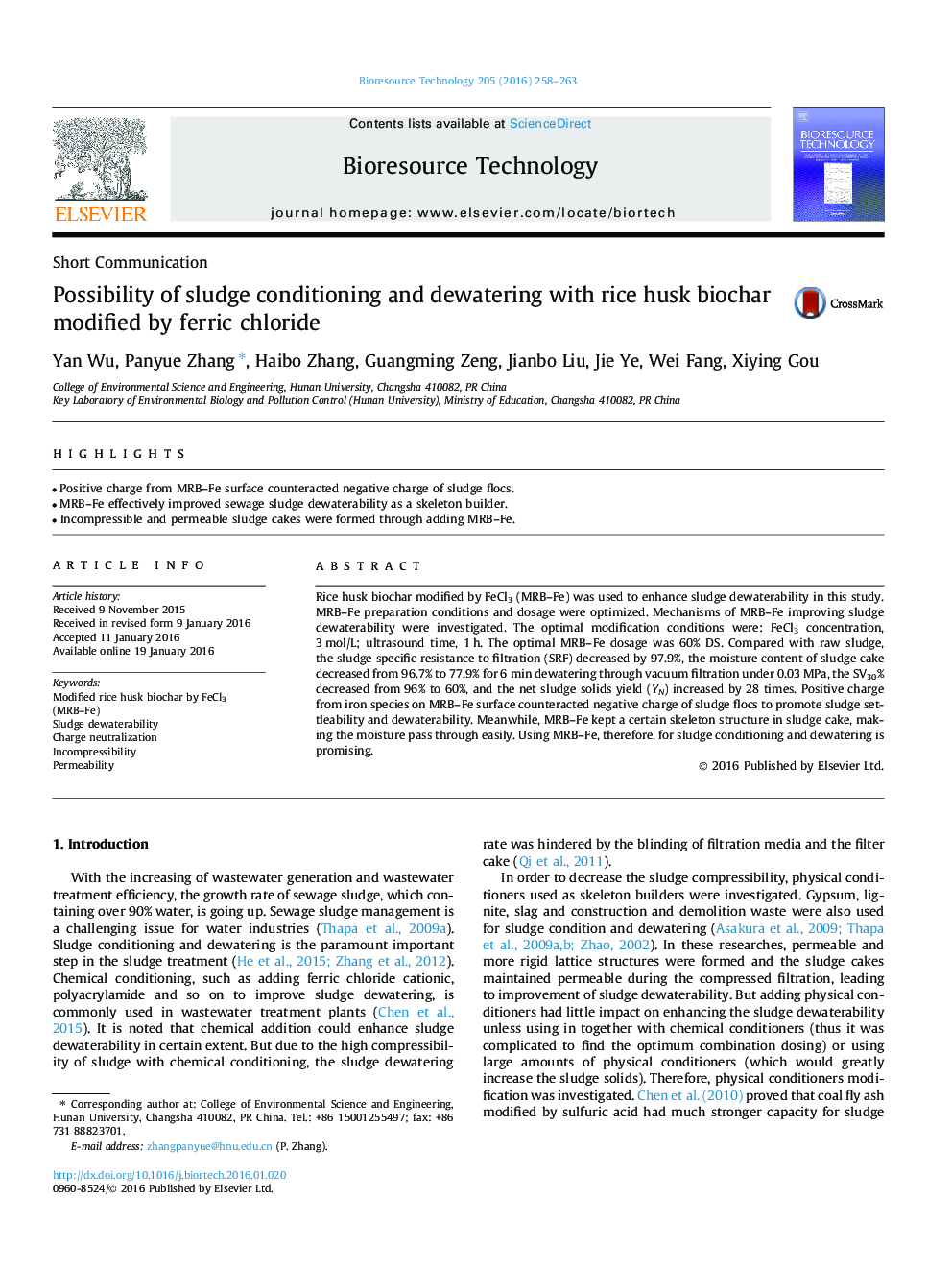| Article ID | Journal | Published Year | Pages | File Type |
|---|---|---|---|---|
| 679284 | Bioresource Technology | 2016 | 6 Pages |
Abstract
Rice husk biochar modified by FeCl3 (MRB-Fe) was used to enhance sludge dewaterability in this study. MRB-Fe preparation conditions and dosage were optimized. Mechanisms of MRB-Fe improving sludge dewaterability were investigated. The optimal modification conditions were: FeCl3 concentration, 3Â mol/L; ultrasound time, 1Â h. The optimal MRB-Fe dosage was 60% DS. Compared with raw sludge, the sludge specific resistance to filtration (SRF) decreased by 97.9%, the moisture content of sludge cake decreased from 96.7% to 77.9% for 6Â min dewatering through vacuum filtration under 0.03Â MPa, the SV30% decreased from 96% to 60%, and the net sludge solids yield (YN) increased by 28 times. Positive charge from iron species on MRB-Fe surface counteracted negative charge of sludge flocs to promote sludge settleability and dewaterability. Meanwhile, MRB-Fe kept a certain skeleton structure in sludge cake, making the moisture pass through easily. Using MRB-Fe, therefore, for sludge conditioning and dewatering is promising.
Related Topics
Physical Sciences and Engineering
Chemical Engineering
Process Chemistry and Technology
Authors
Yan Wu, Panyue Zhang, Haibo Zhang, Guangming Zeng, Jianbo Liu, Jie Ye, Wei Fang, Xiying Gou,
